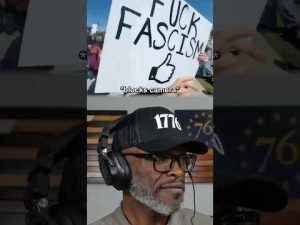In Washington State, a heated debate erupted over the display of the P.O.W./M.I.A. flag at City Hall, leading to a fiery response from a local mayor. An LGBT activist expressed discontent over the flag flying at City Hall, accusing the mayor of using it as a political stunt to avoid displaying the Pride flag. The activist argued that flying the P.O.W./M.I.A. flag consistently was a method to sidestep the acknowledgement of Pride Month. Her critique carried an air of indignation, implying that there was a conspiracy afoot to undermine the Pride flag’s significance.
The mayor, however, was not willing to let this criticism slide and vehemently defended the choice to fly the flag. He pointed out the sacrifices made by veterans, emphasizing that these heroes laid down their lives not just for freedom in America but globally. His rebuttal was a reminder that the freedoms enjoyed today, including the freedom to fly the Pride flag, have been paid for in blood by those represented by the P.O.W./M.I.A. flag. His emotional response was met with applause, underscoring a fundamental respect for veterans that transcends political divides.
It’s perplexing how some individuals can overlook the gravity of what the P.O.W./M.I.A. flag represents. While the rainbow flag celebrates identity and inclusion, the P.O.W./M.I.A. flag stands as a solemn reminder of those who paid the ultimate price for the country. It’s a wonder why anyone would consider this a mere political trick, rather than a tribute to sacrifice. It’s surprising that the notion that these flags symbolize different kinds of heroism eludes some. One flag flies to remember lost lives, while the other celebrates lifestyles without such historical weight.
This situation highlights a growing tension where identity politics can overshadow common sense and respect. When every cause demands equal attention, it becomes a competition, often leading to a trivialization of meaningful symbols. Perhaps, if more leaders had the backbone to stand firm, as this mayor did, there might be more respectful discourse and less chaos in these discussions. Identity politics, after all, can’t always trump the deep-rooted respect and honor due to those who sacrificed their lives.
In the end, this incident serves as a reminder that America is a tapestry of freedoms, hard-earned through sacrifice. The freedoms championed by many activists today owe thanks to those who never came home. Maybe it’s time for some to take a lesson in humility and history before attempting to trivialize the symbols of national sacrifice for the sake of social agendas. After all, real courage lies not in marching at parades, but in the silent, blood-stained grounds that remind us of the cost of freedom.







